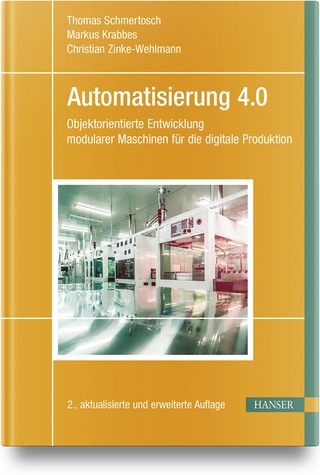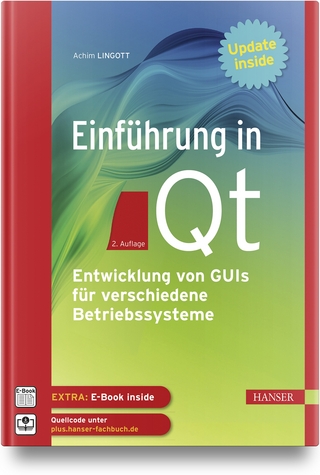
Superdistribution
Addison Wesley (Verlag)
978-0-201-50208-4 (ISBN)
- Titel ist leider vergriffen;
keine Neuauflage - Artikel merken
This book answers one of the most perplexing questions of the information-age economy: Now that object-oriented technologies ranging from programming languages to graphical user interfaces to the world wide web have made it feasible to manufacture objects made of bits, what does it mean to buy, sell and own them? Brad Cox has the answer: "Superdistribution" a comprehensive yet controversial solution that allows software to flow freely, without resistance from copy protection or piracy. Computers vanish altogether, becoming just part of the plumbing through which people communicate, cooperate, and compete as members of a mature, global, electronically-connected society.Superdistribution means giving up on copyright as the sole basis of electronic ownership and turning to useright instead. It means giving the bits away, but charging customers when they use them.In this book, Cox * Discusses the information age economy in terms of objects made of bitsand defined as property in tangible, intellectual and electronic domains; * Introduces superdistribution as a comprehensive yet controversial solution tothe challenges of developing the information age economy; * Traces the cause of the software crisis to the lack of robust means for supporting electronic ownership and revenue collection within elaborate cooperative communities; * Applies the concepts of interchangeable parts and inspection gauges--techniques pioneered during the industrial revolution--to today's challenge of software engineering on the electronic frontier.
0201502089B04062001
Brad Cox is founder of the Coalition for Electronic Markets, an alliance of industrial partners whose goal is deploying a techno-social solution to the electronic property issues of commerce in electronic goods. He is the author of Object-Oriented Programming: An Evolutionary Approach and the originator of the Objective-C programming language. He is a faculty member in the George Mason University Program for Social and Organizational Learning. 0201502089AB04062001
Chapter 1. Information Revolution. Computers, Communications, and Mankind. Invisible Plumbing. Breadth Versus Depth. The Electronic Frontier. The Largest Upheaval of All. Taming the Electronic Frontier. Indigenous Encounters on the Electronic Frontier. 2. Structure of Production. The Tale of the Wooden Pencil. Structure of Production. Social Binding Forces. Commercial Exchange Transactions. The Lair of the Software Werewolf. Pencils as the Fruit of the Pencil Tree. Indian Pottery. Electronic Pencils. Software ICs. Summary. 3. Software Crisis. The Good News: There is a Silver Bullet. The Bad News: Silver Bullets are Paradigm Shifts, Not Tools. The Copernican Revolution. Software Complexity. Software Industrial Revolution. The Intangibility Imperative. Process-Centric Versus Product-Centric. The Structure of Scientific Revolutions. Software Industrial Revolution. Essence Versus Accidents of Software Engineering. The Four Obstacles. Robust Economics for Information- Age Goods. Summary. 4. Software Architecture. What, If Anything, is an Object. Heterogeneity. Compositional Architectures. System 12. Fabrication and Assembly. Specialization of Labor. Process Versus Product. Encapsulation and the Law of Proximity. Programming Languages and Operating Systems. A Richer Set of Architectural Distinctions. Five Architectural Levels by Example. Technical Definitions. Process-level Objects. Task-level Objects. Chip-level Objects. Block- and Gate-level Objects. Programming Language Comparison. Summary. 5. Industrial Revolution. Specification, Testing, and Language. Specification and Testing Tools. Armory Practice. Thomas Jefferson. Eli Whitney. Roswell Lee. Revolutions Dont Happen Overnight. The Heroes of the Industrial Revolution. Software Engineering. Specification and Testing Tools. What is a Stack. Assertion Checking. White-Box Testing. Black-Box Testing. Black-Box Specification/Testing. Classes and Inheritance. 6. Out of the Crisis. Out of the Crisis.
| Erscheint lt. Verlag | 18.7.1996 |
|---|---|
| Verlagsort | Boston |
| Sprache | englisch |
| Maße | 159 x 232 mm |
| Gewicht | 334 g |
| Themenwelt | Informatik ► Software Entwicklung ► Objektorientierung |
| Mathematik / Informatik ► Informatik ► Theorie / Studium | |
| ISBN-10 | 0-201-50208-9 / 0201502089 |
| ISBN-13 | 978-0-201-50208-4 / 9780201502084 |
| Zustand | Neuware |
| Haben Sie eine Frage zum Produkt? |
aus dem Bereich


